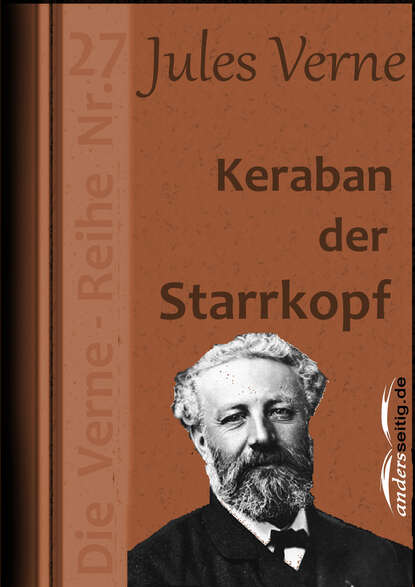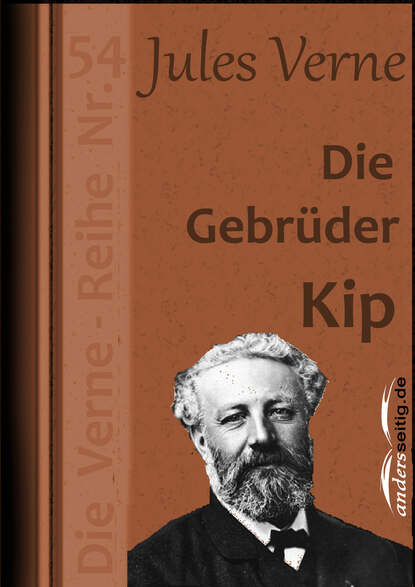 Полная версия
Полная версияПолная версия:
Жюль Габриэль Верн Abandoned
- + Увеличить шрифт
- - Уменьшить шрифт

Verne Jules
Abandoned
INTRODUCTION
The present romance, the second in the Mysterious Island triad, was originally issued in Paris with the title of L'Abandonné. Jules Verne's list of stories already ran then to some twenty volumes – a number which has since grown to almost Dumasien proportions. L'Abandonné, like its two companion tales, ran its course as a serial through the Magasin Illustré of education and recreation, before its issue as a boy's story-book. Its success in both forms seems to have established a record in the race for popularity and a circulation in both the French and English fields of current literature. The present book was translated into English by the late W. H. G. Kingston; and is printed in Everyman's Library by special exclusive arrangement with Messrs. Sampson Low, Marston & Co., Ltd.
1909CHAPTER I
Conversation on the Subject of the Bullet – Construction of a Canoe – Hunting – At the Top of a Kauri – Nothing to attest the Presence of Man – Neb and Herbert's Prize – Turning a Turtle – The Turtle disappears – Cyrus Harding's Explanation.
It was now exactly seven months since the balloon voyagers had been thrown on Lincoln Island. During that time, notwithstanding the researches they had made, no human being had been discovered. No smoke even had betrayed the presence of man on the surface of the island. No vestiges of his handiwork showed that either at an early or at a late period had man lived there. Not only did it now appear to be uninhabited by any but themselves, but the colonists were compelled to believe that it never had been inhabited. And now, all this scaffolding of reasonings fell before a simple ball of metal, found in the body of an inoffensive rodent! In fact, this bullet must have issued from a firearm, and who but a human being could have used such a weapon?
When Pencroft had placed the bullet on the table, his companions looked at it with intense astonishment. All the consequences likely to result from this incident, notwithstanding its apparent insignificance, immediately took possession of their minds. The sudden apparition of a supernatural being could not have startled them more completely.
Cyrus Harding did not hesitate to give utterance to the suggestions which this fact, at once surprising and unexpected, could not fail to raise in his mind. He took the bullet, turned it over and over, rolled it between his finger and thumb; then, turning to Pencroft, he asked, —
"Are you sure that the peccary wounded by this bullet was not more than three months old?"
"Not more, captain," replied Pencroft. "It was still sucking its mother when I found it in the trap."
"Well," said the engineer, "that proves that within three months a gun-shot was fired in Lincoln Island."
"And that a bullet," added Gideon Spilett, "wounded, though not mortally, this little animal."
"That is unquestionable," said Cyrus Harding, "and these are the deductions which must be drawn from this incident: that the island was inhabited before our arrival, or that men have landed here within three months. Did these men arrive here voluntarily or involuntarily, by disembarking on the shore or by being wrecked? This point can only be cleared up later. As to what they were, Europeans or Malays, enemies or friends of our race, we cannot possibly guess; and if they still inhabit the island, or if they have left it, we know not. But these questions are of too much importance to be allowed to remain long unsettled."
"No! a hundred times no! a thousand times no!" cried the sailor, springing up from the table. "There are no other men than ourselves on Lincoln Island! By my faith! The island isn't large, and if it had been inhabited, we should have seen some of the inhabitants long before this!"
"In fact, the contrary would be very astonishing," said Herbert.
"But it would be much more astonishing, I should think," observed the reporter, "that this peccary should have been born with a bullet in its inside!"
"At least," said Neb seriously, "if Pencroft has not had – "
"Look here, Neb," burst out Pencroft. "Do you think I could have a bullet in my jaw for five or six months without finding it out? Where could it be hidden?" he asked opening his mouth to show the two-and-thirty teeth with which it was furnished. "Look well, Neb, and if you find one hollow tooth in this set, I will let you pull out half a dozen!"
"Neb's supposition is certainly inadmissible," replied Harding, who, notwithstanding the gravity of his thoughts, could not restrain a smile. "It is certain that a gun has been fired in the island, within three months at most. But I am inclined to think that the people who landed on this coast were only here a very short time ago, or that they just touched here; for if, when we surveyed the island from the summit of Mount Franklin, it had been inhabited, we should have seen them or we should have been seen ourselves. It is therefore probable that within only a few weeks castaways have been thrown by a storm on some part of the coast. However that may be, it is of consequence to us to have this point settled."
"I think that we should act with caution," said the reporter.
"Such is my advice," replied Cyrus Harding, "for it is to be feared that Malay pirates have landed on the island!"
"Captain," asked the sailor, "would it not be a good plan, before setting out, to build a canoe in which we could either ascend the river, or, if we liked, coast round the island? It will not do to be unprovided."
"Your idea is good, Pencroft," replied the engineer, "but we cannot wait for that. It would take at least a month to build a boat."
"Yes, a real boat," replied the sailor; "but we do not want one for a sea voyage, and in five days at the most, I will undertake to construct a canoe fit to navigate the Mercy."
"Five days," cried Neb, "to build a boat?"
"Yes, Neb; a boat in the Indian fashion."
"Of wood?" asked the negro, looking still unconvinced.
"Of wood," replied Pencroft, "or rather of bark. I repeat, captain, that in five days the work will be finished!"
"In five days, then, be it," replied the engineer.
"But till that time we must be very watchful," said Herbert.
"Very watchful indeed, my friends," replied Harding; "and I beg you to confine your hunting excursions to the neighbourhood of Granite House."
The dinner ended less gaily than Pencroft had hoped.
So, then, the island was, or had been, inhabited by others than the settlers. Proved as it was by the incident of the bullet, it was hereafter an unquestionable fact, and such a discovery could not but cause great uneasiness amongst the colonists.
Cyrus Harding and Gideon Spilett, before sleeping, conversed long about the matter. They asked themselves if by chance this incident might not have some connection with the inexplicable way in which the engineer had been saved, and the other peculiar circumstances which had struck them at different times. However Cyrus Harding, after having discussed the pros and cons of the question, ended by saying, —
"In short, would you like to know my opinion, my dear Spilett?"
"Yes, Cyrus."
"Well, then, it is this: however minutely we explore the island, we shall find nothing."
The next day Pencroft set to work. He did not mean to build a boat with boards and planking, but simply a flat-bottomed canoe, which would be well suited for navigating the Mercy – above all, for approaching its source, where the water would naturally be shallow. Pieces of bark, fastened one to the other, would form a light boat; and in case of natural obstacles, which would render a portage necessary, it would be easily carried. Pencroft intended to secure the pieces of bark by means of nails, to insure the canoe being water-tight.
It was first necessary to select the trees which would afford a strong and supple bark for the work. Now the last storm had brought down a number of large birch trees, the bark of which would be perfectly suited for their purpose. Some of these trees lay on the ground, and they had only to be barked, which was the most difficult thing of all, owing to the imperfect tools which the settlers possessed. However, they overcame all difficulties.
Whilst the sailor, seconded by the engineer, thus occupied himself without losing an hour, Gideon Spilett and Herbert were not idle. They were made purveyors to the colony. The reporter could not but admire the boy, who had acquired great skill in handling the bow and spear. Herbert also showed great courage and much of that presence of mind which may justly be called "the reasoning of bravery." These two companions of the chase, remembering Cyrus Harding's recommendations, did not go beyond a radius of two miles round Granite House; but the borders of the forest furnished a sufficient tribute of agouties, capybaras, kangaroos, peccaries, etc.; and if the result from the traps was less than during the cold, still the warren yielded its accustomed quota, which might have fed all the colony in Lincoln Island.
Often during these excursions, Herbert talked with Gideon Spilett on the incident of the bullet, and the deductions which the engineer drew from it, and one day – it was the 26th of October – he said, —
"But, Mr. Spilett, do you not think it very extraordinary that, if any castaways have landed on the island, they have not yet shown themselves near Granite House?"
"Very astonishing if they are still here," replied the reporter, "but not astonishing at all if they are here no longer!"
"So you think that these people have already quitted the island?" returned Herbert.
"It is more than probable, my boy; for if their stay was prolonged, and above all, if they were still here, some accident would have at last betrayed their presence."
"But if they were able to go away," observed the lad, "they could not have been castaways."
"No, Herbert; or, at least, they were what might be called provisional castaways. It is very possible that a storm may have driven them to the island without destroying their vessel, and that, the storm over, they went away again."
"I must acknowledge one thing," said Herbert, "it is that Captain Harding appears rather to fear than desire the presence of human beings on our island."
"In short," responded the reporter, "there are only Malays who frequent these seas, and those fellows are ruffians which it is best to avoid."
"It is not impossible, Mr. Spilett," said Herbert, "that some day or other we may find traces of their landing."
"I do not say no, my boy. A deserted camp, the ashes of a fire, would put us on the track, and this is what we will look for in our next expedition."
The day on which the hunters spoke thus, they were in a part of the forest near the Mercy, remarkable for its beautiful trees. There, among others, rose, to a height of nearly 200 feet above the ground, some of those superb coniferæ, to which, in New Zealand, the natives give the name of Kauris.
"I have an idea, Mr. Spilett," said Herbert. "If I were to climb to the top of one of these kauris, I could survey the country for an immense distance round."
"The idea is good," replied the reporter; "but could you climb to the top of those giants?"
"I can at least try," replied Herbert.
The light and active boy then sprang on the first branches, the arrangement of which made the ascent of the kauri easy, and in a few minutes he arrived at the summit, which emerged from the immense plain of verdure.
From this elevated situation his gaze extended over all the southern portion of the island, from Claw Cape on the south-east, to Reptile End on the south-west. To the north-west rose Mount Franklin, which concealed a great part of the horizon.
But Herbert, from the height of his observatory, could examine all the yet unknown portion of the island which might have given shelter to the strangers whose presence they suspected.
The lad looked attentively. There was nothing in sight on the sea, not a sail, neither on the horizon nor near the island. However, as the bank of trees hid the shore, it was possible that a vessel, especially if deprived of her masts, might lie close to the land and thus be invisible to Herbert.
Neither in the forests of the Far West was anything to be seen. The wood formed an impenetrable screen, measuring several square miles, without a break or an opening. It was impossible even to follow the course of the Mercy, or to ascertain in what part of the mountain it took its source. Perhaps other creeks also ran towards the west, but they could not be seen.
But at last, if all indication of an encampment escaped Herbert's sight, could he not even catch a glimpse of smoke, the faintest trace of which would be easily discernible in the pure atmosphere?
For an instant Herbert thought he could perceive a slight smoke in the west, but a more attentive examination showed that he was mistaken. He strained his eyes in every direction, and his sight was excellent. No, decidedly there was nothing there.
Herbert descended to the foot of the kauri, and the two sportsmen returned to Granite House. There Cyrus Harding listened to the lad's account, shook his head and said nothing. It was very evident that no decided opinion could be pronounced on this question until after a complete exploration of the island.
Two days after – the 28th of October – another incident occurred, for which an explanation was again required.
Whilst strolling along the shore about two miles from Granite House, Herbert and Neb were fortunate enough to capture a magnificent specimen of the order of chelonia. It was a turtle of the species Midas, the edible green turtle, so called from the colour both of its shell and fat.
Herbert caught sight of this turtle as it was crawling among the rocks to reach the sea.
"Help, Neb, help!" he cried.
Neb ran up.
"What a fine animal!" said Neb; "but how are we to catch it?"
"Nothing is easier, Neb," replied Herbert. "We have only to turn the turtle on its back, and it cannot possibly get away. Take your spear and do as I do."
The reptile, aware of danger, had retired between its carapace and plastron. They no longer saw its head or feet, and it was motionless as a rock.
Herbert and Neb then drove their sticks underneath the animal, and by their united efforts managed without difficulty to turn it on its back. The turtle, which was three feet in length, would have weighed at least four hundred pounds.
"Capital!" cried Neb; "this is something which will rejoice friend Pencroft's heart."
In fact, the heart of friend Pencroft could not fail to be rejoiced, for the flesh of the turtle, which feeds on wrack-grass, is extremely savoury. At this moment the creature's head could be seen, which was small, flat, but widened behind by the large temporal fossæ hidden under the long roof.
"And now, what shall we do with our prize?" said Neb. "We can't drag it to Granite House!"
"Leave it here, since it cannot turn over," replied Herbert, "and we will come back with the cart to fetch it."
"That is the best plan."
However, for greater precaution, Herbert took the trouble, which Neb deemed superfluous, to wedge up the animal with great stones, after which the two hunters returned to Granite House, following the beach, which the tide had left uncovered. Herbert, wishing to surprise Pencroft, said nothing about the "superb specimen of a chelonian" which they had turned over on the sand, but, two hours later, he and Neb returned with the cart to the place where they had left it. The "superb specimen of a chelonian" was no longer there!
Neb and Herbert stared at each other first, then they stared about them. It was just at this spot that the turtle had been left. The lad even found the stones which he had used, and therefore he was certain of not being mistaken.
"Well!" said Neb, "these beasts can turn themselves over, then?"
"It appears so," replied Herbert, who could not understand it at all, and was gazing at the stones scattered on the sand.
"Well, Pencroft will be disgusted!"
"And Captain Harding will perhaps be very perplexed how to explain this disappearance" thought Herbert.
"Look here," said Neb, who wished to hide his ill-luck, "we won't speak about it."
"On the contrary, Neb we must speak about it," replied Herbert.
And the two, taking the cart, which there was now no use for, returned to Granite House.
Arrived at the dockyard, where the engineer and the sailor were working together Herbert recounted what had happened.
"Oh! the stupids!" cried the sailor, "to have let at least fifty meals escape!"
"But, Pencroft," replied Neb, "it wasn't our fault that the beast got away, as I tell you, we had turned it over on its back!"
"Then you didn't turn it over enough!" returned the obstinate sailor.
"Not enough!" cried Herbert.
And he told how he had taken care to wedge up the turtle with stones.
"It is a miracle, then!" replied Pencroft.
"I thought, captain," said Herbert, "that turtles, once placed on their backs, could not regain their feet, especially when they are of a large size?"
"That is true, my boy," replied Cyrus Harding.
"Then how did it manage?"
"At what distance from the sea did you leave this turtle?" asked the engineer, who, having suspended his work, was reflecting on this incident.
"Fifteen feet at the most," replied Herbert.
"And the tide was low at the time?"
"Yes, captain."
"Well," replied the engineer, "what the turtle could not do on the sand it might have been able to do in the water. It turned over when the tide overtook it, and then quietly returned to the deep sea."
"Oh! what stupids we were!" cried Neb.
"That is precisely what I had the honour of telling you before!" returned the sailor.
Cyrus Harding had given this explanation, which, no doubt, was admissible. But was he himself convinced of the accuracy of this explanation? It cannot be said that he was.
CHAPTER II
First Trial of the Canoe – A Wreck on the Coast – Towing – Flotsam Point – Inventory of the Case: Tools, Weapons, Instruments, Clothes, Books, Utensils – What Pencroft misses – The Gospel – A Verse from the Sacred Book.
On the 9th of October the bark canoe was entirely finished. Pencroft had kept his promise, and a light boat, the shell of which was joined together by the flexible twigs of the crejimba, had been constructed in five days. A seat in the stern, a second seat in the middle to preserve the equilibrium, a third seat in the bows, rowlocks for the two oars, a scull to steer with, completed the little craft, which was twelve feet long, and did not weigh more than 200 pounds.
The operation of launching it was extremely simple. The canoe was carried to the beach and laid on the sand before Granite House, and the rising tide floated it. Pencroft, who leapt in directly, manœuvred it with the scull and declared it to be just the thing for the purpose to which they wished to put it.
"Hurrah!" cried the sailor, who did not disdain to celebrate thus his own triumph. "With this we could go round – "
"The world?" asked Gideon Spilett.
"No, the island. Some stones for ballast, a mast, and a sail, which the captain will make for us some day, and we shall go splendidly! Well, captain – and you, Mr. Spilett; and you, Herbert; and you, Neb – aren't you coming to try our new vessel? Come along! we must see if it will carry all five of us!"
This was certainly a trial which ought to be made. Pencroft soon brought the canoe to the shore by a narrow passage among the rocks, and it was agreed that they should make a trial of the boat that day by following the shore as far as the first point at which the rocks of the south ended.
As they embarked, Neb cried, —
"But your boat leaks rather, Pencroft."
"That's nothing, Neb," replied the sailor; "the wood will get seasoned. In two days there won't be a single leak, and our boat will have no more water in her than there is in the stomach of a drunkard. Jump in!"
They were soon all seated, and Pencroft shoved off. The weather was magnificent, the sea as calm as if its waters were contained within the narrow limits of a lake. Thus the boat could proceed with as much security as if it was ascending the tranquil current of the Mercy.
Neb took one of the oars, Herbert the other, and Pencroft remained in the stern in order to use the skull.
The sailor first crossed the channel, and steered close to the southern point of the islet. A light breeze blew from the south. No roughness was found either in the channel or the green sea. A long swell, which the canoe scarcely felt, as it was heavily laden, rolled regularly over the surface of the water. They pulled out about half a mile distant from the shore, that they might have a good view of Mount Franklin.
Pencroft afterwards returned towards the mouth of the river. The boat then skirted the shore, which, extending to the extreme point, hid all Tadorn's Fens.
This point, of which the distance was increased by the irregularity of the coast, was nearly three miles from the Mercy. The settlers resolved to go to its extremity, and only go beyond it as much as was necessary to take a rapid survey of the coast as far as Claw Cape.
The canoe followed the windings of the shore, avoiding the rocks which fringed it, and which the rising tide began to cover. The cliff gradually sloped away from the mouth of the river to the point. This was formed of granite rocks, capriciously distributed, very different from the cliff at Prospect Heights, and of an extremely wild aspect. It might have been said that an immense cartload of rocks had been emptied out there. There was no vegetation on this sharp promontory, which projected two miles from the forest, and it thus represented a giant's arm stretched out from a leafy sleeve.
The canoe, impelled by the two oars, advanced without difficulty. Gideon Spilett, pencil in one hand and note-book in the other, sketched the coast in bold strokes. Neb, Herbert, and Pencroft chatted, whilst examining this part of their domain, which was new to them, and, in proportion as the canoe proceeded towards the south, the two Mandible Capes appeared to move, and surround Union Bay more closely.
As to Cyrus Harding, he did not speak; he simply gazed, and by the mistrust which his look expressed, it appeared that he was examining some strange country.
In the meanwhile, after a voyage of three quarters of an hour, the canoe reached the extremity of the point, and Pencroft was preparing to return, when Herbert, rising, pointed to a black object, saying, —
"What do I see down there on the beach?"
All eyes turned towards the point indicated.
"Why," said the reporter, "there is something. It looks like part of a wreck half buried in the sand."
"Ah!" cried Pencroft, "I see what it is!"
"What?" asked Neb.
"Barrels, barrels, which perhaps are full," replied the sailor.
"Pull to the shore, Pencroft!" said Cyrus.
A few strokes of the oar brought the canoe into a little creek, and its passengers leapt on shore.
Pencroft was not mistaken. Two barrels were there, half buried in the sand, but still firmly attached to a large chest, which, sustained by them, had floated to the moment when it stranded on the beach.
"There has been a wreck, then, in some part of the island," said Herbert.
"Evidently," replied Spilett.
"But what's in this chest?" cried Pencroft, with very natural impatience. "What's in this chest? It is shut up, and nothing to open it with! Well, perhaps a stone – "
And the sailor, raising a heavy block, was about to break in one of the sides of the chest, when the engineer arrested his hand.
"Pencroft," said he, "can you restrain your impatience for one hour only?"
"But, captain, just think! Perhaps there is everything we want in there!"
"We shall find that out, Pencroft," replied the engineer; "but trust to me, and do not break the chest, which may be useful to us. We must convey it to Granite House, where we can open it easily and without breaking it. It is quite prepared for a voyage, and, since it has floated here, it may just as well float to the mouth of the river."





